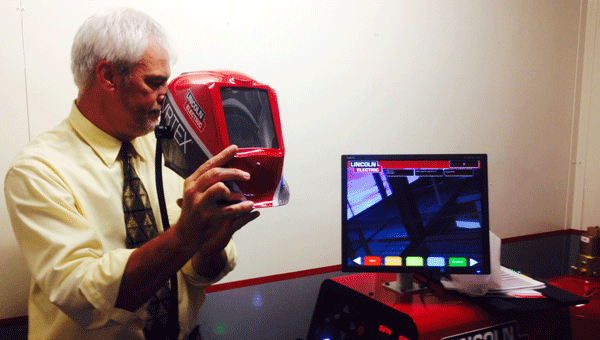LBW mobile welding lab benefits college, high school students
Published 6:04 pm Wednesday, July 30, 2014

Welding instructor Scott Cooper demonstrates the relative ease of use associated with lab’s equipment, including a station that envelops users in a virtual welding simulation.
The newest addition to the LBW’s Luverne campus might resemble a mobile home more than a traditional classroom upon first glance, but it will play a vital role in giving the county’s college and high school students a leg up on the competition in tomorrow’s workforce.
The facility now houses a $470,000 mobile welding lab, courtesy of the multi-million-dollar U.S. Department of Labor’s Trade Adjustment Assistance Community College and Career Training (TAACCCT) grant.
The lab is home to six traditional welding stations as well as two very non-traditional, state-of-the-art virtual welding stations that utilizes a virtual reality headset and a mock welding tool to simulate the actual process with none of the actual hassle.
Welding instructor Scott Cooper was skeptical about the new approach at first, but it didn’t take long for the procedure to feel like second nature.
“I’m old school, but I was proven wrong—an old dog can learn new tricks,” Cooper said.
“Students fly on it a lot quicker than I did. This is their game. This is literally a $50,000 virtual Playstation. A lot of times, they don’t even realize how helpful it is. It gives you the proper technique—rod angle, travel speed, machine setting, this is all pertaining to welding.”
The new approach eliminates much more than the inherent risk involved with welding¬—it’s efficient, as well.
There are no consumables, wires, gas or manpower required to run the system.
A simple series of button presses is all it takes to reset the entire scenario.
“In 30 minutes here, you can weld as much as you can do all day in the field because you’re not having to clean,” Cooper added.
But it’s not just college students who will benefit from the program.
Crenshaw County’s Career Technical Center is slated to begin next month, and LBW’s welding program will give 24 high school students an opportunity to graduate with nine credit hours’ worth of welding experience.
Career Tech director Chuck Alford said that the goal of the program is to expose students to the job world, regardless of whether the job requires a traditional college education.
“So often, we tell children that if you don’t go to college, you’re not going to be successful. Well, only about 50 percent of our kids are going to college, and only 25 percent of those are actually graduating college, so what are the other 75 percent doing,” Alford said.
“Well, they’re going to work. So we’re trying to expose them to those kinds of opportunities.”
The dual enrollment program is being offered to senior high school students at no cost, and 22 of the 24 planned spots for August have already been filled.
Following two semesters of welding courses, the seniors will graduate with half of the credits needed to obtain full certification as a welder.
“This is the real deal, this is state-of-the-art equipment and this is top of the line, fresh off the presses; no one who has a welding certificate will have better equipment that they were trained on,” Alford added.
“It’s like Mr. Cooper said; if you start off learning the proper way, then you’ll just get better and better. If you start off with bad habits, they’re harder and harder to break. So with this equipment and they’re training, we’re just ready to go. We’re extremely excited about it.”





